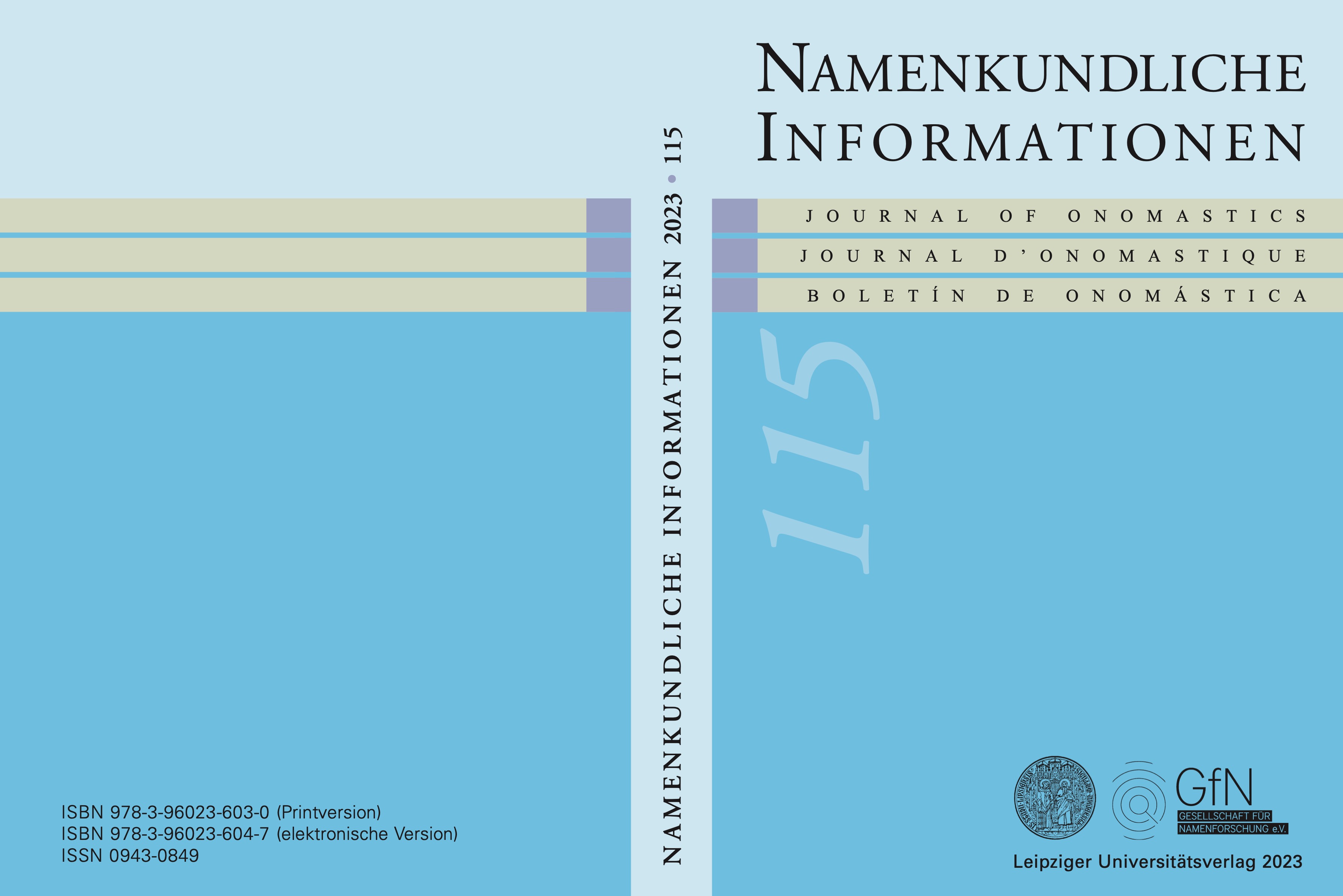Phantomwurzeln und irrige Segmente. Die Behauptung „uralter“ Namen im außerwissenschaftlichen Diskurs
(Themenschwerpunkt)
DOI:
https://doi.org/10.58938/ni725Abstract
Non-scholarly interpretations of names can be recognized as such by applying certain formal and content-related criteria. These structural criteria are presented here as examples in order to better categorize texts. Texts deemed to be “dubious” by scholarly standards can thus be analysed on a formal level without having to engage with what are often lengthy and convoluted arguments. The main characteristics of feigned scientific rigour are the arbitrary segmentation of names according to incomprehensible criteria and the interpretation of these segments by assigning them word roots of obscure or fanciful origin. In most cases, the author will undertake an overall interpretation of such a root cluster and establish relations between the roots. They will then seek to back up the correctness of the interpretation by embedding it in a natural or cultural context. Some recurring roots (phantom roots) in this literature are discussed in more detail. Name interpretations that are linked to a specific context and preclude alternative explanations are often found when nationalistic or religious concepts or fantastical interpretations of the world are to be substantiated. Such approaches have been in use for around 130 years in the successor states of the Austro-Hungarian monarchy, in Germany and in Switzerland.
Downloads
Veröffentlicht
Ausgabe
Rubrik
Lizenz
Copyright (c) 2024 Karl Hohensinner

Dieses Werk steht unter der Lizenz Creative Commons Namensnennung 4.0 International.
Es findet keine exklusive Übertragung von Verwertungsrechten (Copyright Transfer) an die Zeitschrift statt. Die Autor/innen stimmen bei Manuskripteinreichung der Veröffentlichung unter der Lizenz Creative Commons Attribution 4.0 International zu.


